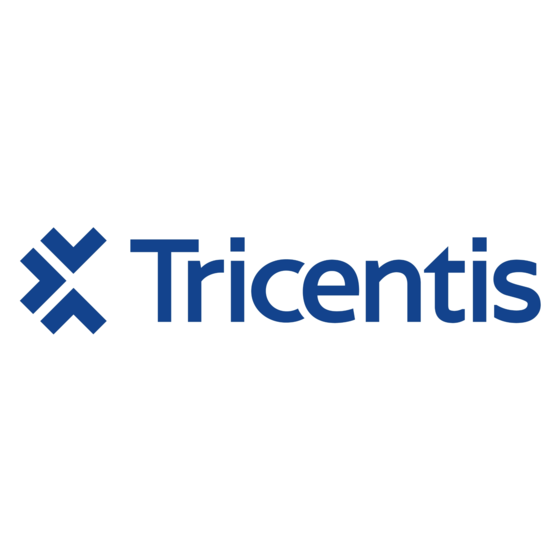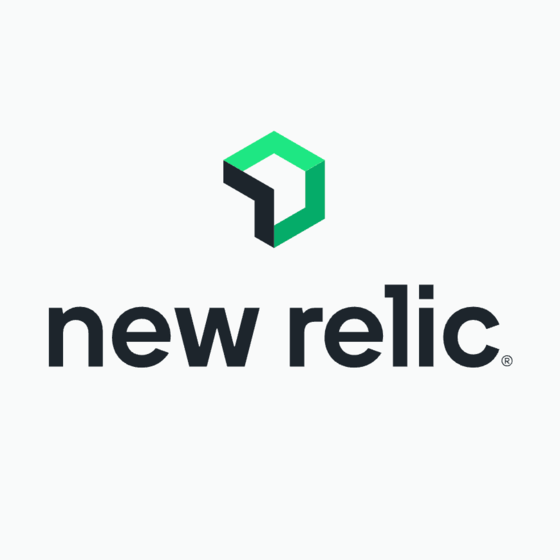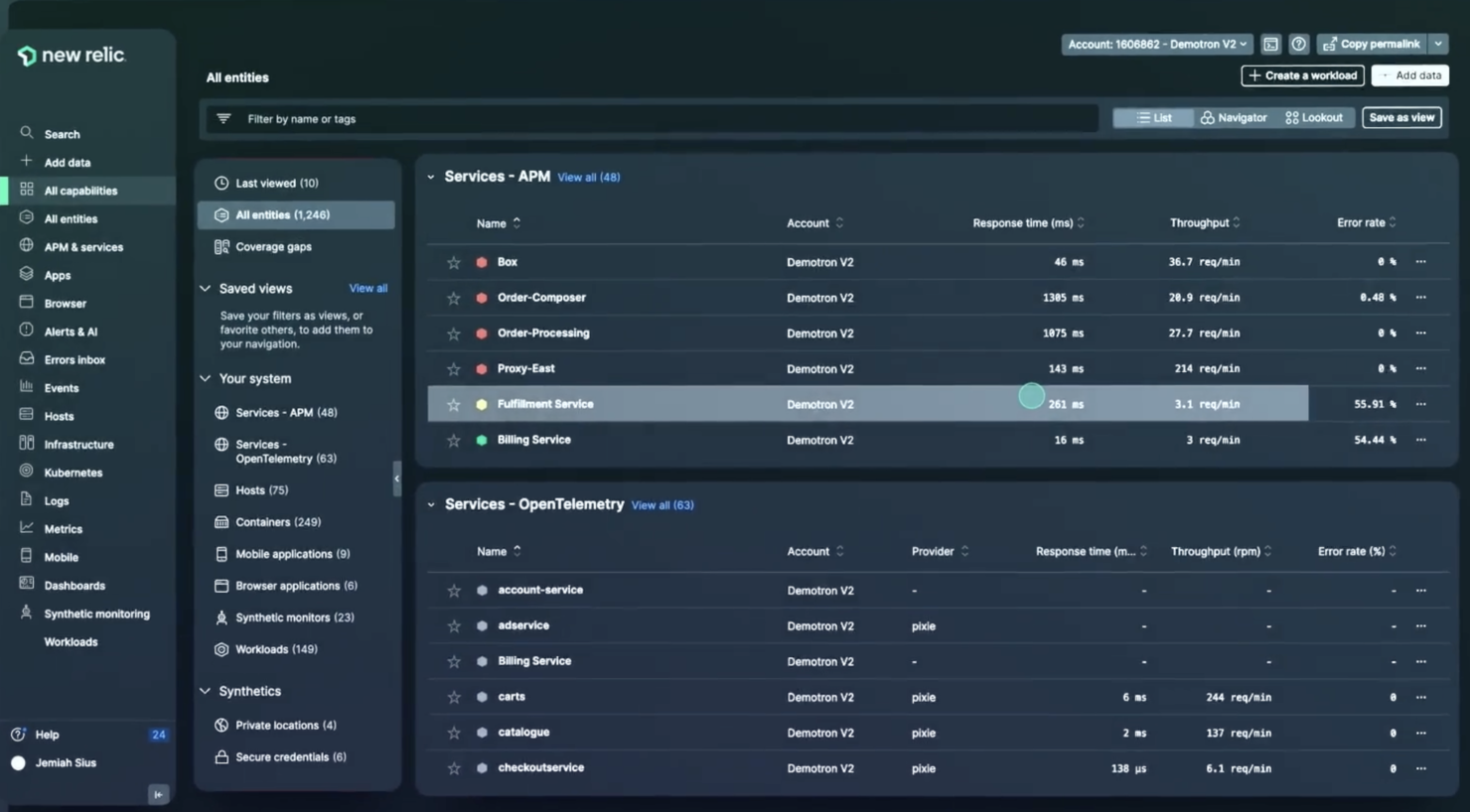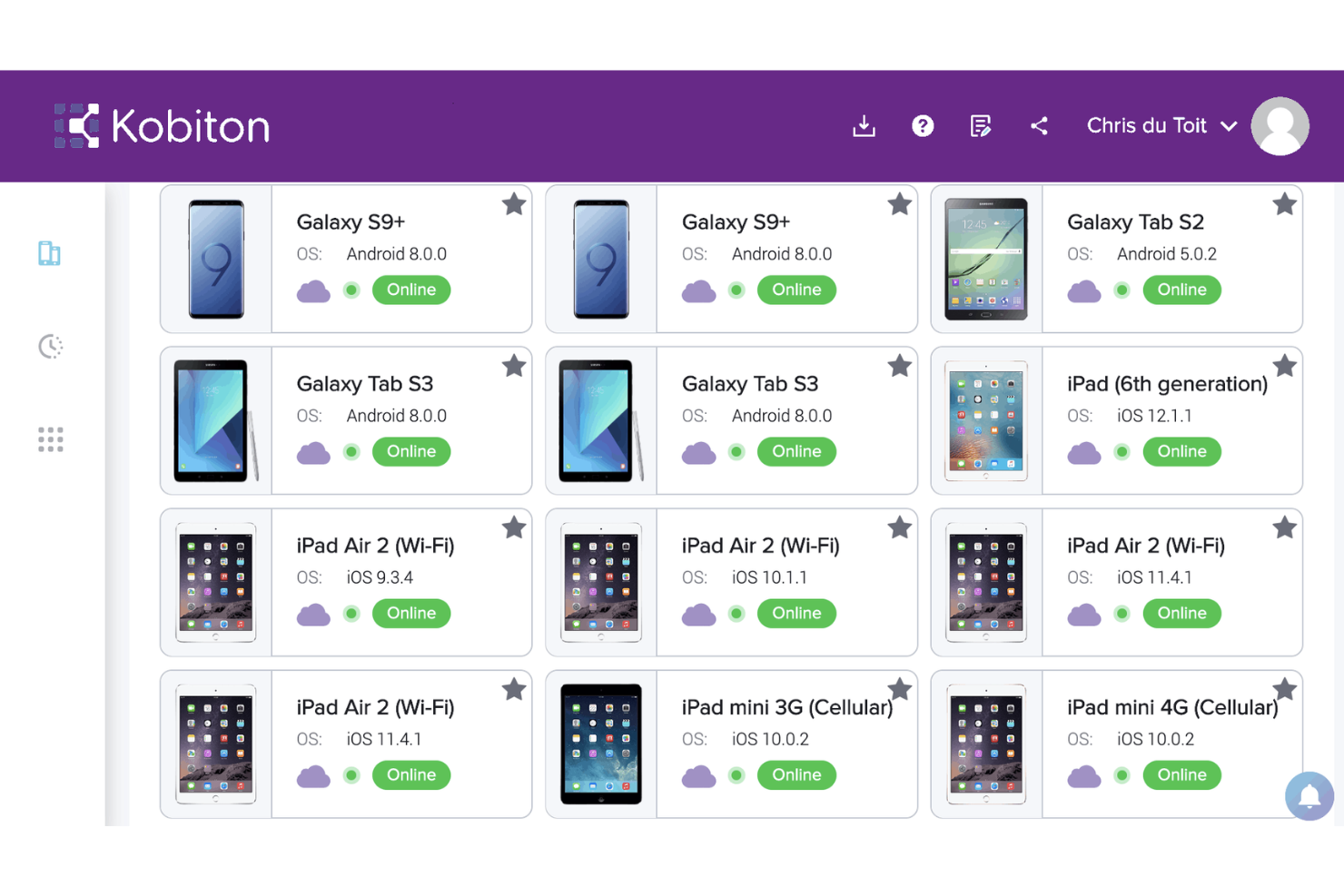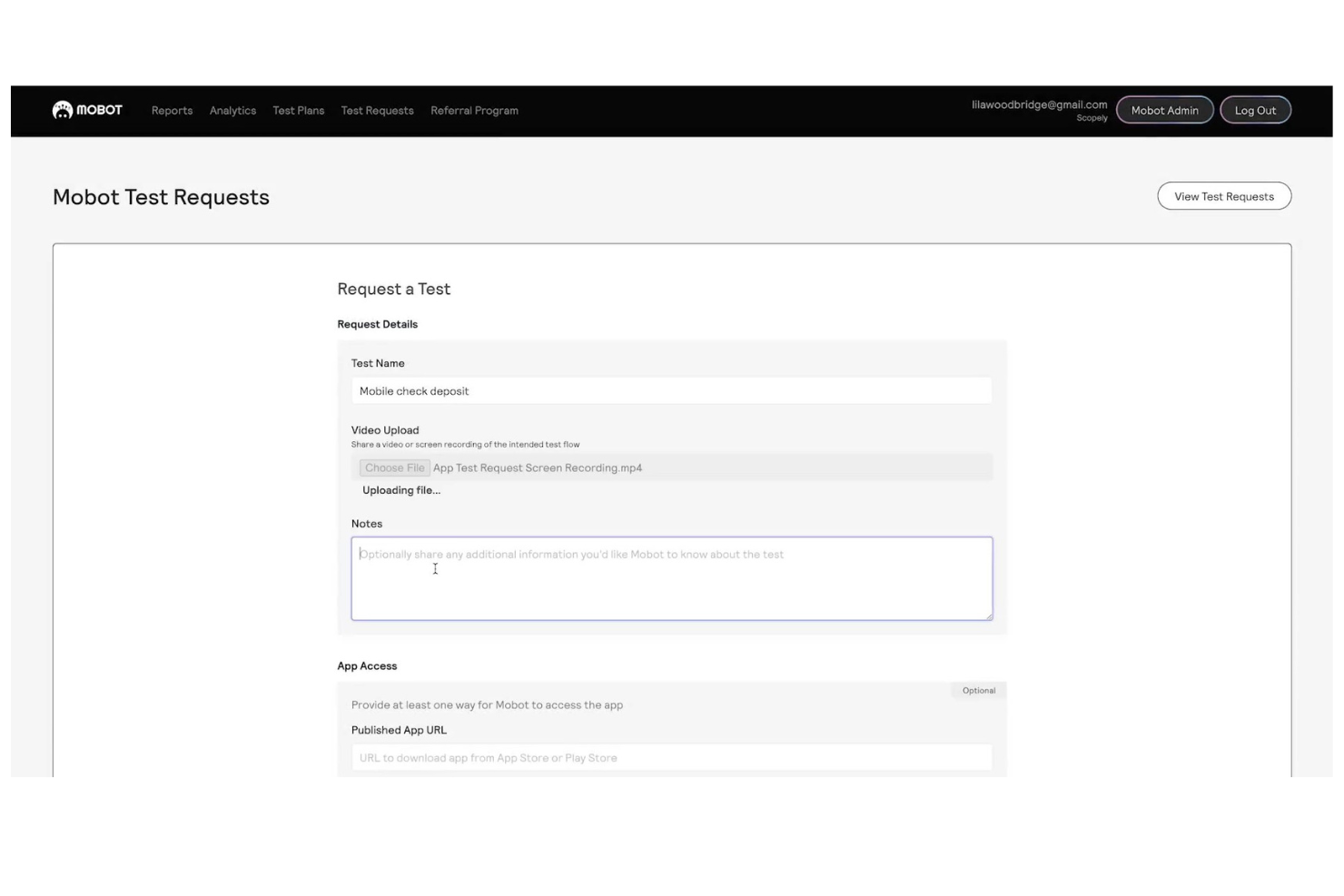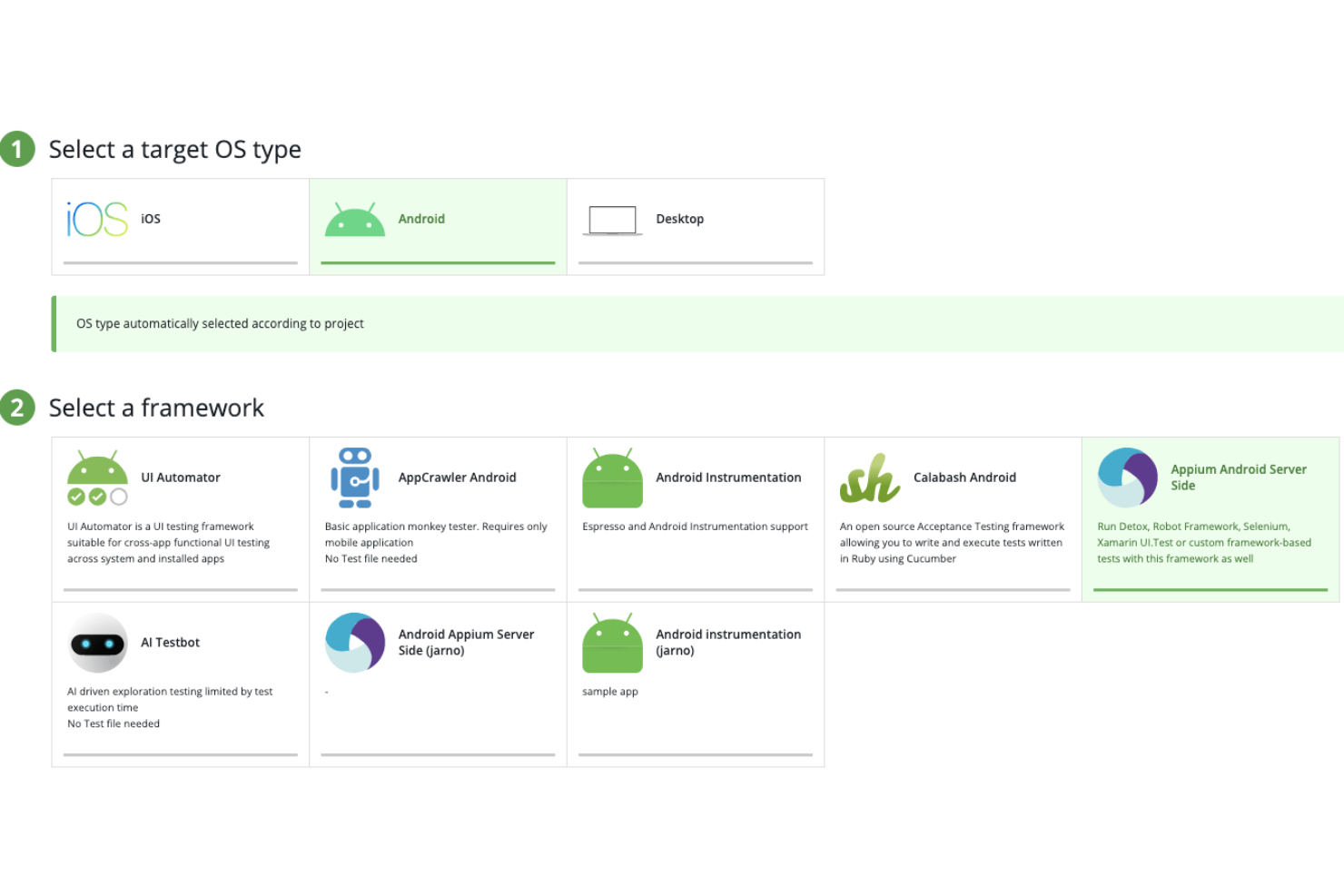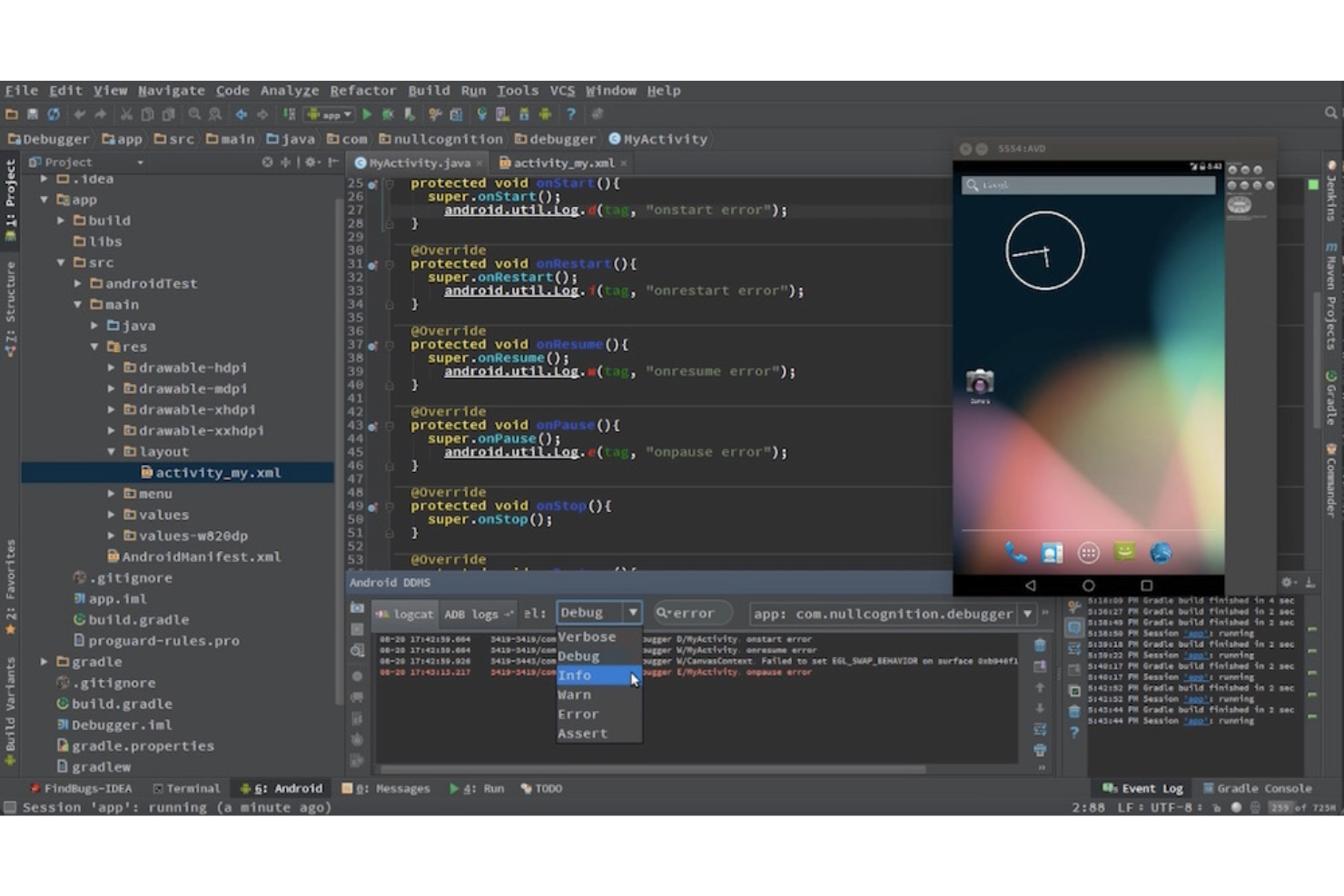Best Android Testing Tools Shortlist
Here's my pick of the 10 best software from the 20 tools reviewed.
Our one-on-one guidance will help you find the perfect fit.
Choosing the right Android testing tool isn’t just a box to check—it’s often the difference between catching a critical bug early or letting it ship to production. But with so many tools claiming to be the “best,” it’s easy to get stuck comparing feature lists without a clear sense of what actually works for your team’s stack, workflows, or deadlines.
Over the years, I’ve worked hands-on with Android testing tools across fast-moving startups and enterprise-scale apps—helping teams identify bottlenecks, integrate automated testing into their CI/CD pipelines, and ship with confidence. In this guide, I’m sharing what I’ve learned: the tools that actually make your job easier, not harder—broken down by real use cases, not marketing buzzwords.
Why Trust Our Software Reviews
We’ve been testing and reviewing SaaS development software since 2023. As tech experts ourselves, we know how critical and difficult it is to make the right decision when selecting software. We invest in deep research to help our audience make better software purchasing decisions.
We’ve tested more than 2,000 tools for different SaaS development use cases and written over 1,000 comprehensive software reviews. Learn how we stay transparent & check out our software review methodology.
Best Android Testing Tools Summary
This comparison chart summarizes pricing details for my top Android testing tool selections to help you find the best one for your budget and business needs.
| Tool | Best For | Trial Info | Price | ||
|---|---|---|---|---|---|
| 1 | Best for AI-driven test automation | Free trial + free demo available | Pricing upon request | Website | |
| 2 | Best for real-time performance monitoring | Free plan + demo available | Pricing upon request | Website | |
| 3 | Best for real device testing | Free trial available + free demo | From $83/month | Website | |
| 4 | Best for automated physical testing | Free trial + free demo available | Pricing upon request | Website | |
| 5 | Best for behavior-driven development | Not available | Free to use | Website | |
| 6 | Best for end-to-end testing on React Native | Not available | Free to use | Website | |
| 7 | Best for integrated development environment | Not available | Free to use | Website | |
| 8 | Best for early-stage app testing | Not available | Free to use | Website | |
| 9 | Best for emulating diverse devices | Not available | Open source and free | Website | |
| 10 | Best for codeless test creation | Free trial + free demo available | Pricing upon request | Website |
-

Docker
Visit WebsiteThis is an aggregated rating for this tool including ratings from Crozdesk users and ratings from other sites.4.6 -

Pulumi
Visit WebsiteThis is an aggregated rating for this tool including ratings from Crozdesk users and ratings from other sites.4.8 -

GitHub Actions
Visit Website
Best Android Testing Tool Reviews
Below are my detailed summaries of the best Android testing tools that made it onto my shortlist. My reviews offer a detailed look at the key features, pros & cons, integrations, and ideal use cases of each tool to help you find the best one for you.
Tricentis Testim Mobile is a cloud-based testing solution for iOS and Android applications. It's designed for developers and QA teams looking to automate testing for native, hybrid, and cross-platform apps. It provides automated testing capabilities to enhance app stability and reduce maintenance.
Why I picked Tricentis Testim Mobile: Its AI-driven automation helps detect app elements efficiently, making it stand out in the market. The Virtual Mobile Grid allows seamless test execution, which is key for scalability. Easy test and application management simplify workflows for your team. Quick diagnostics for failures mean you can address issues faster.
Standout features & integrations:
Features include automated testing for both iOS and Android apps, seamless test execution on a Virtual Mobile Grid, and quick diagnostics for failures. You can also manage tests and applications with ease.
Integrations include Jira, Jenkins, GitHub, GitLab, Bitbucket, Slack, Microsoft Teams, TestRail, BrowserStack, and Sauce Labs.
Pros and cons
Pros:
- Supports cross-platform testing
- Quick failure diagnostics
- AI-driven test automation
Cons:
- Can be complex for beginners
- Requires internet for cloud access
New Relic is an observability platform for developers, offering monitoring and insights into app performance and infrastructure. It serves software developers and IT teams, focusing on end-to-end monitoring and real-time data analysis.
Why I picked New Relic: It excels in real-time performance monitoring, providing insights into application behavior. The platform offers comprehensive monitoring, enabling your team to troubleshoot efficiently. Its integration with numerous tools ensures flexibility in your workflow. Pay-as-you-go pricing allows you to manage costs effectively.
Standout features & integrations:
Features include real-time data analysis, comprehensive monitoring, and a flexible pricing model. The platform allows your team to efficiently troubleshoot issues and optimize performance.
Integrations include AWS, Azure, Google Cloud Platform, Kubernetes, Docker, Slack, PagerDuty, Jira, GitHub, and Microsoft Teams.
Pros and cons
Pros:
- Integrates easily with popular dev tools
- Wide range of monitoring capabilities
- AI-powered anomaly detection and intelligent alerting
Cons:
- Added complexity from reliance on agents installed on application servers
- Has a bit of a learning curve
Kobiton is a mobile testing platform that provides real device access for testing apps, primarily targeting QA teams and developers. It focuses on delivering accurate testing results by allowing users to test on actual devices rather than emulators.
Why I picked Kobiton: It prioritizes real device testing, which is crucial for accurate results. With Kobiton, your team can access a wide range of devices for thorough testing. The platform supports manual and automated testing, catering to different needs. Its user-friendly interface simplifies the testing process, making it accessible to your entire team.
Standout features & integrations:
Features include real-time device access for testing, support for both manual and automated testing, and a wide range of devices available for testing. The platform's intuitive interface makes testing straightforward and efficient.
Integrations include Jira, Jenkins, GitHub, Bitbucket, Slack, Azure DevOps, Bamboo, CircleCI, Travis CI, and TeamCity.
Pros and cons
Pros:
- Supports Appium testing framework
- Supports team collaboration
- Provides integrations with DevOps and project management platforms
Cons:
- Some devices may be unavailable
- Complicated to configure
Mobot is a mobile testing platform that automates physical testing for mobile apps, targeting QA teams and developers who need reliable hardware testing.
Why I picked Mobot: It offers automated physical testing, which ensures your app's functionality on actual hardware. This feature is crucial for identifying issues that emulators might miss. Mobot's testing process is efficient and helps your team save time. Its ability to provide detailed test reports allows for quick identification of problem areas.
Standout features & integrations:
Features include automated testing on actual devices, detailed test reports, and efficient testing processes. These features help your team quickly identify and resolve issues that might not be apparent on emulators.
Integrations include Jira, Slack, TestRail, GitHub, Bitbucket, Asana, Trello, Jenkins, Microsoft Teams, and Azure DevOps.
Pros and cons
Pros:
- Can handle multi-device interactions (messaging, push notifications)
- Can mimic physical device interactions: swipes, clicks, turns
- Record a video of the test you'd like to run to implement it
Cons:
- Tests setup within 24-48 hours (their team must manually do this)
- Few native integrations currently
Calabash is an open-source testing framework tailored for developers and QA teams focusing on behavior-driven development (BDD) for Android apps.
Why I picked Calabash: It supports behavior-driven development, which allows your team to write tests in a natural language style. Calabash supports a wide range of Android devices, making it versatile for testing. Its integration with Cucumber enhances the BDD approach, allowing tests to be more descriptive. The open-source nature provides flexibility for customizations to suit your specific needs.
Standout features & integrations:
Features include support for writing tests in natural language, wide device compatibility, and integration with Cucumber for BDD. The framework also offers flexibility for customization, aligning with your team’s specific testing requirements.
Integrations include Cucumber, Ruby, Jenkins, GitHub, Bitbucket, Travis CI, CircleCI, Bamboo, Eclipse, and IntelliJ IDEA.
Pros and cons
Pros:
- Comprehensive test coverage
- Easy to use
- Strong community support
Cons:
- Not ideal for complex apps
- Maintenance required for test scripts
Detox is an end-to-end testing framework designed for React Native applications. It provides automated testing capabilities to ensure that applications behave as expected across different scenarios.
Why I picked Detox: It offers specialized end-to-end testing for React Native, which is crucial for developers working in this environment. Detox synchronizes with the app's lifecycle, ensuring tests are executed at the right moments. Its ability to run tests in parallel speeds up the testing process significantly. The framework's open-source nature allows you to customize tests to fit your specific needs.
Standout features & integrations:
Features include synchronization with the app's lifecycle, parallel test execution, and the ability to customize tests. Detox also provides detailed logs and reports to help your team identify issues quickly.
Integrations include React Native, Jest, Mocha, Jasmine, Travis CI, CircleCI, Jenkins, GitHub, Bitbucket, and GitLab.
Pros and cons
Pros:
- Customizable test cases
- Faster testing process
- Allows tests on real devices
Cons:
- Setup can be complex
- Limited support for web apps
Android Studio is an integrated development environment (IDE) designed for Android app development, catering to developers who need a comprehensive toolset for app creation.
Why I picked Android Studio: It offers a complete development environment, which is crucial for developers working on Android apps. The IDE includes a code editor, a visual layout editor, and various debugging tools. Its support for multiple programming languages enhances versatility. The built-in emulator allows you to test apps in a virtual environment efficiently.
Standout features & integrations:
Features include a visual layout editor for building app interfaces, a flexible build system for customizing builds, and a powerful code editor for efficient coding. The built-in emulator provides a virtual testing environment to streamline app testing.
Integrations include Firebase, GitHub, Bitbucket, Google Cloud Platform, Jenkins, Gradle, Maven, Slack, Jira, and Trello.
Pros and cons
Pros:
- Flexible build system
- Supports multiple languages
- Built-in emulator
Cons:
- Not ideal for beginners
- High system requirements
Robotium facilitates automated UI testing of Android applications, offering a straightforward way to write functional and system tests.
Why I picked Robotium: It offers a simple setup for early-stage testing, which is ideal for developers starting app projects. Robotium supports both native and hybrid applications, providing flexibility in testing. Its ability to handle multiple Android activities makes it versatile. The open-source nature allows your team to customize and extend functionalities as needed.
Standout features & integrations:
Features include support for native and hybrid applications, the ability to handle multiple Android activities, and an open-source framework for customization. It also offers straightforward setup and execution for early-stage testing.
Integrations include Android Studio, Eclipse, Maven, Gradle, Jenkins, GitHub, Bitbucket, Travis CI, CircleCI, and Bamboo.
Pros and cons
Pros:
- Supports all Android versions
- Supports multiple programming languages
- Supports complex user interfaces
Cons:
- Not ideal for complex tests
- Limited documentation and tutorials
Selendroid is an open-source test automation framework for Android devices. It provides the capability to automate user interactions, ensuring app functionality across different environments.
Why I picked Selendroid: It is designed for emulating diverse devices, which is essential for comprehensive testing. Selendroid supports both real devices and emulators, offering flexibility in testing environments. It enables parallel test execution, which can speed up the testing process significantly. The open-source framework allows customization, letting your team tailor testing to specific needs.
Standout features & integrations:
Features include support for both emulators and real devices, parallel test execution, and the ability to automate user interactions. The open-source nature of Selendroid provides flexibility for customizing tests to suit your team's requirements.
Integrations include Selenium WebDriver, Maven, Jenkins, Gradle, GitHub, Bitbucket, Eclipse, IntelliJ IDEA, Travis CI, and CircleCI.
Pros and cons
Pros:
- Integrates with Selenium Grid
- Easy to set up and configure
- Compatibility with multiple Android versions
Cons:
- Limited advanced features
- Requires manual setup of devices
Testsigma is an automated testing platform designed for both technical and non-technical users aiming to simplify the testing process. It serves QA teams and developers by offering codeless test creation and execution, making testing accessible to a broader range of users.
Why I picked Testsigma: It enables codeless test creation, which is a significant advantage for teams without extensive coding skills. The platform supports natural language processing, allowing you to write tests in plain English. Its cloud-based architecture ensures scalability and flexibility for different project sizes. Testsigma’s real-time test execution and reporting enhance productivity, helping your team stay on track.
Standout features & integrations:
Features include natural language processing for test creation, real-time test execution, and cloud-based scalability. The platform also offers detailed reporting to keep your team informed on test progress.
Integrations include Jira, Jenkins, GitHub, Slack, Trello, Bamboo, Bitbucket, TestRail, Zapier, and Asana.
Pros and cons
Pros:
- Cross-browser and platform capabilities
- No coding experience required
- Intuitive user interface
Cons:
- Some features have a learning curve
- Limited programming language support
Other Android Testing Tools
Here are some additional Android testing tools options that didn’t make it onto my shortlist, but are still worth checking out:
- BrowserStack
For cloud-based browser testing
- Katalon Studio
For all-in-one test automation
- testRigor
For no-code test automation
- Mocha
For flexible JavaScript testing
- MonkeyRunner
For automated functional testing
- Appium
For open-source mobile automation
- Waldo
For mobile emulator testing
- Espresso
For UI testing on Android
- Ranorex
For test automation across multiple operating systems and platforms
- Rainforest QA
For on-demand human testing
Android Testing Tool Selection Criteria
When selecting the best Android testing tools to include in this list, I considered common buyer needs and pain points like compatibility issues and the need for real device testing. I also used the following framework to keep my evaluation structured and fair:
Core Functionality (25% of total score)
To be considered for inclusion in this list, each solution had to fulfill these common use cases:
- Automate functional testing
- Support multiple device types
- Execute parallel test runs
- Provide detailed test reports
- Integrate with CI/CD pipelines
Additional Standout Features (25% of total score)
To help further narrow down the competition, I also looked for unique features, such as:
- AI-driven test automation
- Real device testing capabilities
- Codeless test creation
- Cross-platform compatibility
- Behavior-driven development support
Usability (10% of total score)
To get a sense of the usability of each system, I considered the following:
- Intuitive user interface
- Minimal learning curve
- Customizable dashboards
- Efficient navigation
- Clear documentation
Onboarding (10% of total score)
To evaluate the onboarding experience for each platform, I considered the following:
- Availability of training videos
- Interactive product tours
- Access to webinars
- Comprehensive user manuals
- Responsive chat support
Customer Support (10% of total score)
To assess each software provider’s customer support services, I considered the following:
- 24/7 availability
- Multiple support channels
- Dedicated account managers
- Fast response times
- Quality of technical assistance
Value For Money (10% of total score)
To evaluate the value for money of each platform, I considered the following:
- Competitive pricing
- Flexible subscription plans
- Free trial availability
- Inclusions in the basic plan
- Pricing transparency
Customer Reviews (10% of total score)
To get a sense of overall customer satisfaction, I considered the following when reading customer reviews:
- Overall satisfaction ratings
- Feedback on feature effectiveness
- Comments on ease of use
- Support experience feedback
- Value for money perceptions
How to Choose Android Testing Tools
It’s easy to get bogged down in long feature lists and complex pricing structures. To help you stay focused as you work through your unique software selection process, here’s a checklist of factors to keep in mind:
| Factor | What to Consider |
| Scalability | Ensure the tool can grow with your needs. Look for solutions that can handle increased test loads and support additional devices as your team expands. |
| Integrations | Check compatibility with your current tech stack. The tool should integrate smoothly with CI/CD pipelines, version control systems, and project management tools. |
| Customizability | Consider how much you can tailor the tool to fit your specific workflows. This includes setting custom reports and adjusting testing parameters. |
| Ease of Use | Evaluate the learning curve. The tool should offer an intuitive interface and straightforward navigation, minimizing the time you need to spend on training. |
| Budget | Align the tool’s cost with your financial constraints. Look for transparent pricing and ensure that the features you need are included in the plan you choose. |
| Security Safeguards | Verify the tool's compliance with data protection standards. It should offer secure data handling and privacy features to protect your sensitive information. |
| Support | Consider the level of customer support available. Responsive and knowledgeable support can save your team time and frustration. |
| Performance | Assess how the tool performs under various conditions. It should provide reliable results without significant slowdowns or failures during peak usage. |
Trends in Android Testing Tools
In my research, I sourced countless product updates, press releases, and release logs from different Android testing tool vendors. Here are some of the emerging trends I’m keeping an eye on:
- AI-Powered Testing: AI is being used to enhance test accuracy and efficiency. Tools are leveraging machine learning to identify patterns and predict potential issues, reducing manual test creation time. AI-driven analytics provide deeper insights into test results, helping teams make informed decisions.
- Cross-Platform Testing: More tools are supporting testing across multiple platforms with a single script. This feature is crucial for teams developing apps for both Android and iOS, as it saves time and ensures consistency. Vendors like Appium are leading the way in this area.
- Real-Time Collaboration: Tools are now offering features that allow multiple team members to work on tests simultaneously. This boosts productivity and ensures that everyone stays up to date with the latest changes. Cloud-based platforms are particularly strong in this trend.
- Enhanced Reporting Dashboards: Vendors are improving their reporting dashboards to provide more customizable and interactive data visualizations. These dashboards help teams quickly identify trends and issues without sifting through raw data. This trend is particularly useful for managers who need to present findings to stakeholders.
- Continuous Testing Integration: Continuous testing is becoming a standard practice, with tools integrating more tightly into CI/CD pipelines. This ensures that testing is a part of every stage of the development process, catching issues before they reach production. Tools like Jenkins are often used alongside testing solutions to facilitate this integration.
What Are Android Testing Tools?
Android testing tools are software solutions designed to automate and manage the testing of Android applications. Developers and QA teams typically use these tools to ensure app functionality, performance, and user experience. Features like automated testing, cross-platform compatibility, and mobile crash reporting tools support efficient testing processes and help teams catch issues early. These tools provide immense value by reducing manual effort, speeding up development cycles, and ensuring high-quality apps.
Features of Android Testing Tools
When selecting Android testing tools, keep an eye out for the following key features:
- Automated testing: Automates repetitive tests to save time and reduce human error.
- Cross-platform compatibility: Allows testing across different operating systems with one script, ensuring consistency.
- Real-time reporting: Provides immediate feedback on test results, helping teams quickly identify and address issues.
- Parallel test execution: Runs multiple tests at the same time, speeding up the testing process.
- Codeless test creation: Enables non-technical users to create tests using a visual interface, broadening accessibility.
- AI-driven analytics: Uses machine learning to analyze test outcomes, offering deeper insights for decision-making.
- Behavior-driven development support: Facilitates writing tests in natural language, aligning with business requirements.
- Integration with CI/CD pipelines: Ensures testing is part of the development cycle, catching issues early.
- Customizable dashboards: Allows users to tailor data visualizations for better analysis and communication.
- Real device testing: Tests apps on actual devices to ensure performance and functionality in real-world conditions.
Benefits of Android Testing Tools
Implementing Android testing tools provides several benefits for your team and your business. Here are a few you can look forward to:
- Improved efficiency: Automated testing reduces manual workload, allowing your team to focus on more strategic tasks.
- Faster development cycles: Features like parallel test execution speed up the testing process, helping you release updates quicker.
- Higher app quality: Real device testing ensures your app performs well in real-world conditions, leading to better user satisfaction.
- Cost savings: By catching issues early with integration into CI/CD pipelines, you avoid costly post-release fixes.
- Enhanced collaboration: Real-time reporting and customizable dashboards keep everyone informed and aligned on testing progress.
- Broader accessibility: Codeless test creation enables non-technical team members to participate in the testing process.
- Deeper insights: AI-driven analytics provide valuable data that helps your team make informed decisions and improve app performance.
Costs and Pricing of Android Testing Tools
Selecting Android testing tools requires an understanding of the various pricing models and plans available. Costs vary based on features, team size, add-ons, and more. The table below summarizes common plans, their average prices, and typical features included in Android testing tools solutions:
Plan Comparison Table for Android Testing Tools
| Plan Type | Average Price | Common Features |
| Free Plan | $0 | Limited test runs, basic reporting, and community support. |
| Personal Plan | $10-$30 /user /month | Automated testing tools, access to emulators, and basic analytics. |
| Business Plan | $30-$60 /user /month | Cross-platform testing, real device access, and priority support. |
| Enterprise Plan | $60-$100 /user /month | Custom integrations, advanced analytics, and dedicated account management. |
Android Testing Tools FAQs
Here are some answers to common questions about Android testing tools:
Which tool is used to test Android applications?
There are several tools available for testing Android applications, each with its own strengths. For instance, Selendroid is popular for automating UI testing on both emulators and real devices. It’s similar to Selenium, offering features like playback and recording. Your choice should depend on your specific testing requirements and existing infrastructure.
What are the main types of testing that should be performed on Android applications?
Android applications typically undergo various types of testing to ensure quality. These include unit testing, integration testing, functional testing, UI testing, performance testing, and security testing. Each type targets different aspects of the app, ensuring that it functions correctly and securely across different scenarios.
What is the Android testing strategy?
An effective Android testing strategy involves using the right infrastructure and tools to run tests continuously. It includes unit and component tests that run on a Continuous Integration (CI) system for every new code commit. This helps maintain code quality and catch issues early in the development process.
How to automate testing in Android?
To automate testing in Android, start by defining your automation goals and planning your test cases. Choose an appropriate automation framework that suits your needs, like Appium or Espresso. Set up your test environment to run automated tests efficiently and identify bugs early.
Why are real device tests important in Android testing?
Real device tests are crucial because they provide accurate results that reflect real-world user experiences. Emulators can miss certain issues that only appear on actual devices. Testing on real devices helps ensure that your app performs well under real conditions, which is vital for user satisfaction.
How can I ensure the security of my Android testing process?
To ensure the security of your Android testing process, use tools that comply with data protection standards. Secure your testing environment by restricting access and encrypting sensitive data. Regularly update your testing tools and frameworks to protect against vulnerabilities.
What's Next?
Boost your SaaS growth and leadership skills. Subscribe to our newsletter for the latest insights from CTOs and aspiring tech leaders. We'll help you scale smarter and lead stronger with guides, resources, and strategies from top experts!


